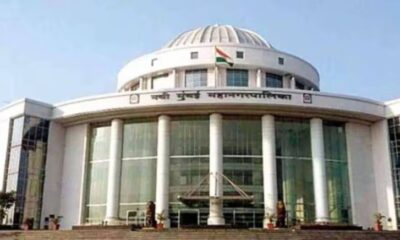Latest News
Thane District Launches Special Campaign To Promote Wet and Dry Waste Sorting
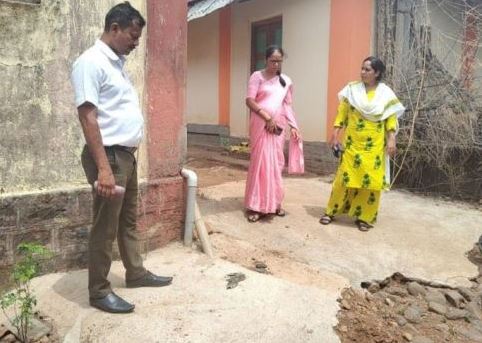
The district of Thane started a noteworthy endeavor on Monday, July 8. Its goal is to effectively classify home and local trash into categories of wet and dry waste. This program, called “Swachhteche Don rang, Ola Hirwa, Sukha Neela” (Two Colors of Cleanliness, Wet Green, Dry Blue), would take place in every hamlet in the district per the state government’s direction.
As the “Two Colors of Cleanliness, Wet Green, Dry Blue” campaign gets underway, Jal Jeevan Mission’s CEO, Rohan Ghuge, and Project Director, Atul Paraskar, have called on the locals to take an active role in controlling both wet and dry trash.
By December 2024, Thane District hopes to provide an example in pollution reduction in accordance with the Swachh Bharat Mission (Phase 2). A campaign to raise awareness about pollution-free surroundings has been initiated, which involves using home visits to encourage model communities to maintain consistent cleanliness standards.
Zilla Parishad CEO Rohan Ghuge will oversee the appointment of five communicators in each village, whose job it is to educate locals while doing home visits.
Local authorities, sanitation committees, village laborers, Asha laborers, Anganwadi Sevaks, Swachhagrahis, and women from self-help organizations are also contributing to this initiative. These visits are being facilitated by Taluka Development Officers, who make sure that there is efficient communication and execution.
Along with encouraging frequent toilet usage and using scientific waste management techniques, residents are urged to separate wet trash into green bins and dry garbage into blue bins. The program also covers the appropriate treatment of sludge, managing cow poo and plastic, and maintaining public spaces on a regular basis.
In order to properly track progress, during these visits, home data, including pictures, will be recorded using instruments supplied by the government.
Latest News
Navi Mumbai Cancels Invitations to Newly Elected Corporators for Republic Day Ceremonies
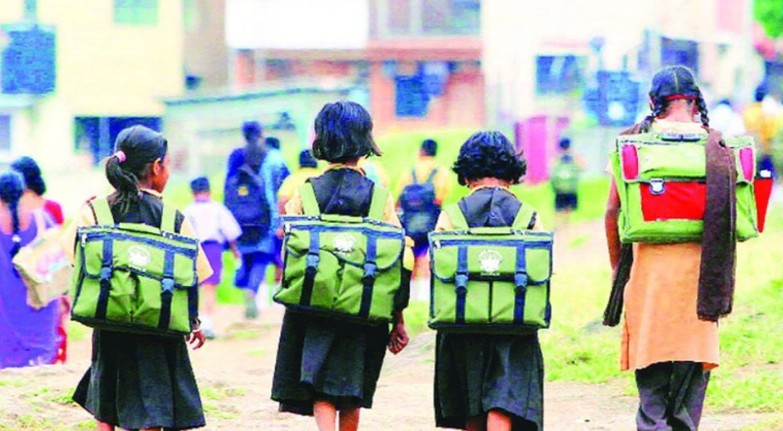
School principals to hoist the national flag following administrative delays.
The Flag Hoisting
The Navi Mumbai Municipal Corporation (NMMC) has cancelled invitations extended to newly elected corporators for Republic Day flag-hoisting ceremonies in civic schools this year, citing administrative and procedural delays.
Although the municipal elections have concluded, the first general body meeting of the newly elected corporators is yet to take place. In view of this, the NMMC education department has issued revised instructions for the January 26 celebrations across all municipal schools. As per the new directive, school principals will themselves conduct the flag-hoisting ceremonies, and corporators will not be invited to preside over the events.
Officials clarified that any earlier circulars or communications instructing schools to invite corporators should be treated as cancelled. In cases where invitation letters have already been sent, school principals have been directed to inform the concerned corporators about the revised decision and explain the administrative reasons behind the change.
The move has been described as a temporary arrangement until formal procedures related to the newly elected body are completed. The education department has emphasized that the decision is purely administrative and not political in nature.
Despite the change, the NMMC has instructed all schools to ensure that Republic Day celebrations are conducted with full enthusiasm, discipline and respect for national values. Principals have been asked to strictly adhere to the guidelines and ensure smooth conduct of the programme.
The decision has drawn attention as it comes soon after the municipal elections, highlighting the impact of procedural delays on official civic events.
Latest News
1111-Feet Tricolor Yatra Fills Navi Mumbai with Patriotic Zeal
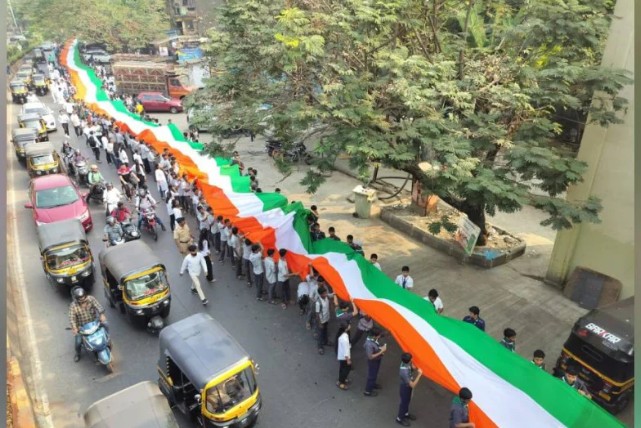
ABVP initiative sees thousands of students participate spontaneously ahead of Republic Day.
The Initiative
Patriotic fervour gripped Navi Mumbai as the Akhil Bharatiya Vidyarthi Parishad (ABVP) organised a massive 1,111-feet-long Tricolor Yatra, witnessing spontaneous participation from thousands of students and citizens on the eve of Republic Day.
The yatra was held as part of Youth Week celebrations and to mark the birth anniversary of Netaji Subhas Chandra Bose, with the objective of inspiring nationalism, unity and social responsibility among the youth. Students marched proudly while holding the enormous national flag, raising slogans such as “Bharat Mata Ki Jai,” “Vande Mataram” and “Jai Hind,” creating an atmosphere charged with patriotic emotion.
The rally began at Blue Diamond Chowk, Vashi, and culminated at Rajiv Gandhi College of Arts, Commerce and Science, Sector 10A, where a short programme was organised. Speakers highlighted the role of students in nation-building and appealed to the youth to actively contribute to society beyond academics.
Prominent attendees included ABVP state minister Rahul Rajoria, sports coordinator Arpita Malik, and college principal Dr Basukinath Pandey, who praised the enthusiasm and discipline shown by the participants. They urged students to uphold constitutional values and remain socially responsible citizens.
The event’s smooth execution was attributed to the efforts of Dr Akshay Shet and more than 100 volunteers. Participants and local residents said the Tricolor Yatra strengthened the sense of unity and national pride, making it a memorable and inspiring pre-Republic Day event for Navi Mumbai.
Latest News
Garbage Piles Become Major Issue Ahead of Uran Elections
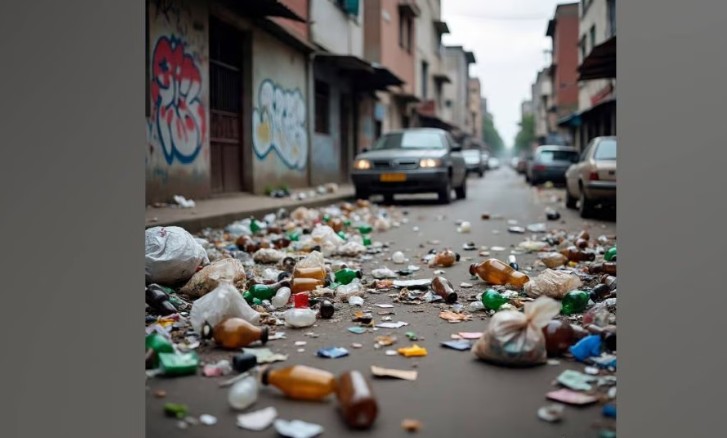
With the Uran civic elections approaching, local residents and political observers are raising serious concerns about the persistent garbage problem across the area. Overflowing waste on main roads and traffic lanes has emerged as a key issue in the election campaign, with voters expressing frustration over poor civic management.
Several key thoroughfares in Uran, especially around busy intersections and residential localities, have been seen strewn with garbage that has not been collected for days. Piles of waste are causing traffic disruptions, foul odour and unhygienic conditions, prompting complaints from commuters, shopkeepers and local residents.
Civic activists and opposition leaders have criticised the local administration for its failure to ensure regular garbage collection and proper waste disposal. They say that poor sanitation has not only affected the appearance of the town but also posed health risks, especially during peak summer months.
Residents pointed out that despite repeated assurances from officials, garbage is frequently left uncollected in several areas, leading to water logging and breeding of insects. Many voters have highlighted this issue as a priority concern affecting their daily lives and have demanded immediate action from authorities.
Political parties contesting the Uran elections have responded by promising stricter monitoring of waste collection, improvement in street cleaning, and deployment of more resources for solid waste management.
As election day approaches, garbage disposal and civic cleanliness have become central themes in public discussions, reflecting growing citizen demand for improved basic services and accountable governance.
-

 Fact Check5 years ago
Fact Check5 years agoNidhi Razdan, fake Harvard professorship, and here is the explanation through her blog.
-

 India4 years ago
India4 years agoAs the arrangement with Prashant Kishor falls through Rahul Gandhi has gone overseas again and is uncontactable
-

 Technology4 years ago
Technology4 years agoBSNL reveals all new 4G plans starting at ₹16
-

 Latest News5 years ago
Latest News5 years agoGovernment has spent ₹9,725 crores on Covid-19 vaccination drive so far
-

 Latest News4 years ago
Latest News4 years agoTata wins Air India with ₹18,000 crore bid
-

 Latest News4 years ago
Latest News4 years agoJharkhand government cuts Petrol price by massive ₹25 a litre but with a catch
-

 Latest News5 years ago
Latest News5 years agoRaj Kundra Gave ₹25 Lakh Bribe to Mumbai Crime Branch to Avoid Arrest
-

 Navi Mumbai5 years ago
Navi Mumbai5 years agoNavi Mumbai civic body raids and tests morning walkers, many found COVID positive







